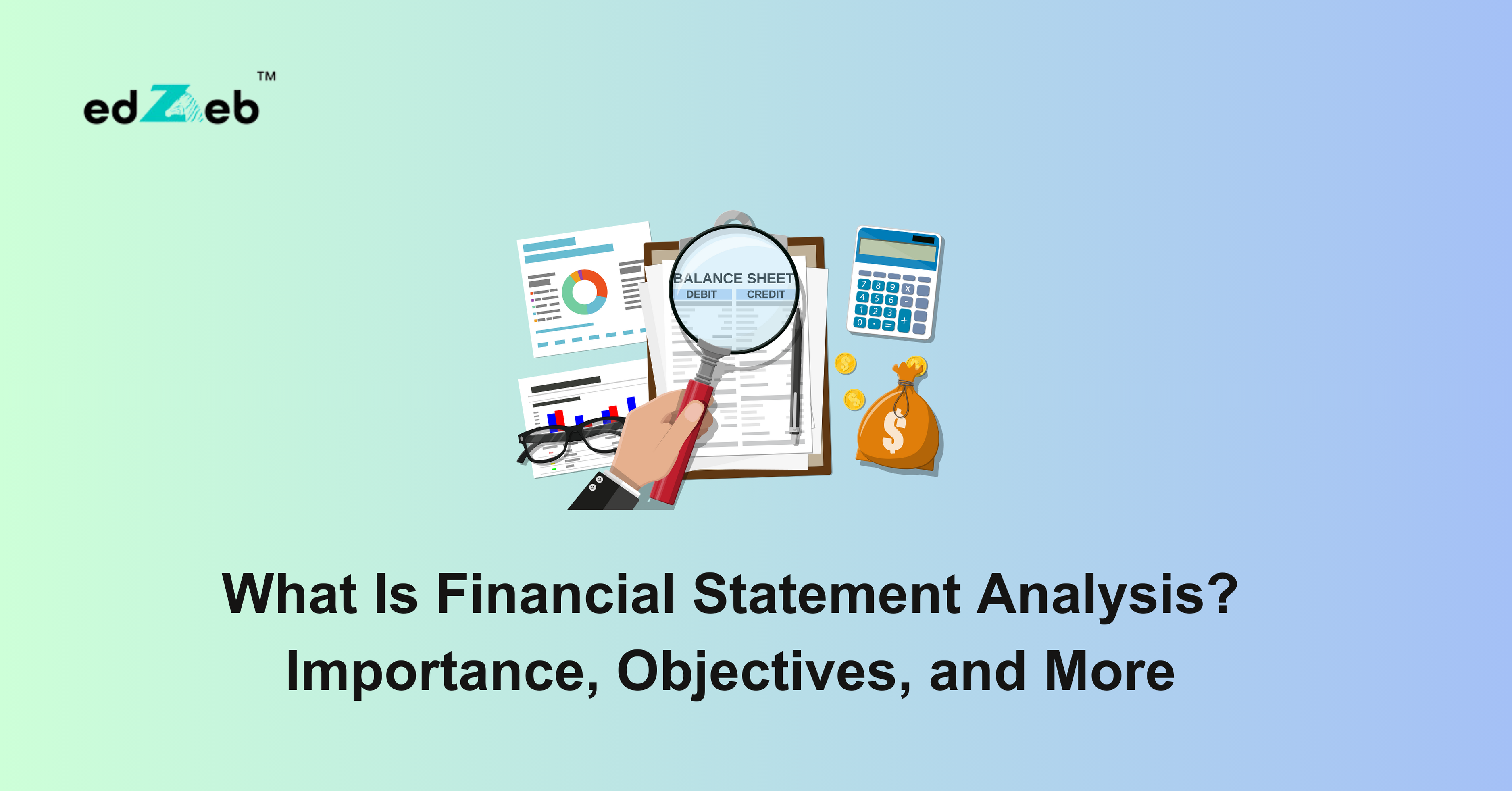
We are living in a highly competitive world that is rapidly developing due to technology and market trends. Graduating with a Bachelor’s degree (BAF) is a significant milestone but it is not enough to stay competitive in the job market. Many students wonder what to do after BAF to build a successful career in finance. Exploring advanced certifications or specialized training can be a great way to enhance your skills and stand out in the finance industry.
Read the comprehensive guide further to know what are the best courses after BAF that you can choose from and build a successful career path.
Table of Contents:
What is BAF: An Overview
Bachelor’s in Accounting and Finance is a 3-year undergraduate degree program. It covers various topics including Accounting, Financial Institutions, Market Systems, Banking, Management, etc but the curriculum may vary with different institutions. Having a bachelor’s in Finance and Accounting not only helps you grasp theoretical knowledge of commerce but also improves your practical understanding of Auditing, Investment Analysis, and Financial Management among others.
However, if you want to aim to climb up the corporate ladder, become an expert—a chartered accountant, or financial analyst, or break into niche areas like investment banking, the right course after BAF can be the key to unlocking a successful career path.
What is the Scope of BAF in India?
If we talk about the scope of Baf in India, it is vast. You will get numerous job opportunities across various industries. BAF enables graduates to be productive members of a diverse professional environment within the finance industry by engaging in innovation, sustainability, and prosperity in global economies.
After completing BAF you gain comprehensive knowledge of fundamental financial principles and practices. This will help you cope with today’s changing dynamics of finance. Bachelor’s in Accounting and Finance also covers some complicated financial theories throughout the course work. Apart from that, you get to learn strategic financial management as well as practical accounting techniques making them valuable assets to any organization.
We can say that BAF not only fosters academic excellence but also nurtures critical thinking ability, problem-solving abilities, and ethical decision-making skills. Thus, making it a highly sought-after qualification in the banking, finance, insurance, and corporate finance sectors.
Comparing the scope of BAF in India to other finance-related degrees, BAF graduates are better prepared to take on specialized roles in the financial sector.
After BAF Course Job Opportunities
After completing a BAF degree, graduates have a wide range of career paths to choose from in the finance and accounting sectors. Whether you want to enter corporate finance, investment banking, or accounting. The skills acquired during BAF equip you with the expertise to excel in various professional roles. Below is a breakdown of some of the top after BAF job opportunities, along with the key skills required and average salary prospects in India.
After BAF Job Opportunities | ||
Job Role | Key Skills Required | Average Salary (India) |
Financial Analyst | Financial modeling, analytical skills, Excel | ₹4-8 LPA |
Accountant | Accounting principles, Tally, MS Excel | ₹3-6 LPA |
Auditor | Attention to detail, knowledge of auditing standards | ₹4-7 LPA |
Tax Consultant | Taxation laws, compliance, analytical thinking | ₹4-8 LPA |
Investment Banker | Financial modeling, valuation, communication skills | ₹10-15 LPA |
Risk Manager | Risk assessment, financial analysis | ₹6-12 LPA |
Financial Planner | Financial advisory, communication, client management | ₹4-9 LPA |
Business Analyst | Data analysis, business acumen, Excel | ₹5-9 LPA |
Cost Accountant | Costing techniques, analytical thinking, Excel | ₹4-7 LPA |
Corporate Finance Executive | Financial management, forecasting, budgeting | ₹6-12 LPA |
Budget Analyst | Budgeting, financial planning, reporting | ₹4-7 LPA |
Banking Associate | Client management, banking regulations | ₹3-6 LPA |
Top 7 Courses After BAF?
If you are thinking of what to do after BAF, then here is a list of courses that you can enroll yourself in. Continue reading to learn about the various courses after BAF to advance your career options.
1. ACCA (Association of Chartered Certified Accountants)
ACCA is a globally recognized qualification that equips individuals with financial and business expertise. The certification excels individuals in accounting, audit, taxation, and financial management across various industries. The curriculum’s alignment with BAF makes it an ideal choice for those seeking to enhance their qualifications, offering a strong foundation for a rewarding career in ACCA.
What’s more to your advantage is that after BAF course, you will be granted 4 ACCA exam exemptions, including
- Applied Knowledge Level
Business and technology (BT)
Management Accounting (MA)
Financial Accounting (FA)
- Applied Skills Level
Corporate and Business Law (LW)
These ACCA exemptions quicken your journey toward earning the ACCA qualification and starting your global career in finance and accounting.
2. CFA (Chartered Financial Analyst)
A globally recognized professional credential equips candidates with the specialized financial knowledge and skills necessary to excel a career in finance. Any senior secondary pass or graduate can enroll in the CFA course, and aspire to work in high-profile jobs. Understanding the CFA duration is essential, as the program typically takes several years to complete, depending on the candidate’s pace in passing the three levels of exams.
To understand CFA eligibility, it’s important to know that becoming a CFA charter holder, you have to pass three levels of examination – level 1, level 2, and level 3 covering investment management, financial analysis, ethics, and professional standards. Along with this, a candidate must complete 4 years of professional experience to earn the CFA charter.
There are a vast number of career opportunities after completing BAF but if you are interested in investment and financial markets you must enroll in a CFA program and advance your career to international boundaries across the finance industry.
3. CMA US (Certified Management Accountant)
CMA is a specialized certification for those interested in Management Accounting. CMA US aspirants are equipped with financial management, strategic planning, and performance evaluation skills, helping them to excel in decision-making roles across various industries. The US CMA course duration typically varies based on individual progress, but most candidates complete it within 6 months to a year, depending on their preparation and pace.
It takes approximately a year to complete as the curriculum is divided into 2 sections including,
- CMA US Part 1
Financial Planning, Performance, and Analytics
- CMA US Part 2
Strategic Finance Management
If you are personally interested in building your career in management roles, then you must consider enrolling for CMA US. You will get the advantage of possessing a dual degree in CMA US after BAF course helps you stand out in the highly competitive job market.
4. CIMA (Chartered Institute of Management Accountant)
CIMA is a globally recognized qualification managed and conducted by the UK-based ICMAI, Institute Of Cost Accountants Of India organization. The qualification majorly focuses on management accounting, financial management, and strategic business leadership.
It takes up to 5 to 6 years to pass all exams at the certificate, operational, management, and strategic levels with relevant experience to gain CIMA charter. You may also get exemptions from all or most of the CIMA modules.
CIMA professionals work majorly as management accountants, business analysts, forensic analysts, project managers, and finance controllers. They preferably fit these roles because the CIMA program equips strategic thinking and financial expertise in them.
5. CA (Chartered Accountant)
You can become a CA, after completing BAF. It is a highly sought-after qualification equipping professionals with comprehensive financial expertise in auditing, taxation, and regulatory compliance. It is regulated by the Institute of Chartered Accountants of India (ICAI) and the associate members of the ICAI are entitled to add the prefix CA to their names.
To become a CA, you have to undergo 3 stages the CA Foundation, CA Intermediate, and CA Final exams. Along with that, articleship is also important to complete for relevant practical exposure in the field consuming approximately 5 years. Once all stages are successfully completed, you will be a qualified Chartered Accountant, ready to take on advanced roles in the world of finance and accounting.
It is an ideal qualification for you if you are personally interested in public accounting. As a CA, you can find various career opportunities in India because every region has its own set standards of accounting, so it may limit you from working globally.
You may be interested in reading CA vs CMA: What Is the Right Course To Choose?
6. Financial Modelling Courses
What to do after BAF course? If you are still confused, then consider the option to enroll in financial modelling valuation analysis course. It is a short-term course that enables you to practically apply financial modelling techniques in real-world situations.
It is an application-based course that helps you learn how to create financial models to forecast a company’s financial performance and analyze its business performance. The FM course also covers building financial statements, valuation methods, industry-specific models, mergers and acquisitions, and investment analysis.
7. MBA
It is suggested to do a Master’s degree after a bachelor’s but yes, pursuing an MBA in the relevant field of study whether it is finance, or accounting after a Bachelor’s in Accounting and Finance. They are already aware of the financial concepts and analytical skills so it is easy for BAF graduates to excel in MBA. It will lead to a career in the financial services sector, and graduates can expect competitively high salaries.
Comparative Analysis of Top Courses Career Options, After Completing BAF
There are various career options after completing BAF, so it suggests a vast scope of BAF in India. However, having a dual degree always proves beneficial and helps you stand out in the competitive job market.
Let us see the comparative analysis of BAF course job opportunities combined with top courses.
Certification | Focus Area | Career Opportunities | Salary Potential (India) |
ACCA | Global accounting and finance | Financial accountant, auditor, tax consultant, finance manager | ₹8-12 LPA |
CFA | Investment management, equity research, portfolio management | Investment banker, financial analyst, portfolio manager | ₹10-15 LPA |
CMA US | Management accounting, cost analysis, financial strategy | Cost accountant, management accountant, corporate finance analyst | ₹7-10 LPA |
CIMA | Business and management accounting | Management accountant, business analyst, financial strategist | ₹8-12 LPA |
CA | Auditing, taxation, regulatory compliance, corporate finance | Auditor, tax consultant, CFO, financial controller | ₹7-15 LPA |
Financial Modeling | Financial analysis, business valuation, forecasting | Financial analyst, investment banker, valuation expert | ₹6-10 LPA |
Conclusion
Bachelor’s in Accounting and Finance offers you many job benefits but to stand out, it may not be enough. So, combining it with various top courses including specialized certifications will help you excel in your career.
FAQ’s
Can I get a job immediately after completing BAF?
Yes, many jobs are available after BAF, so you can get a job immediately after completing BAF.
Is pursuing an MBA after BAF a good option?
Yes, pursuing a master's degree after a bachelor’s is a sign of commitment to pursue a field of study with interest. So. an MBA is a good option after BAF course, which will help acquire the necessary skills and knowledge to pursue a career in the accounting and finance industry.
What skills are essential for a successful career after BAF?
BAF equips you with skills such as accounting knowledge, financial analysis, communication, and analytical thinking to build a successful career.
Which certification offers exemptions for BAF graduates?
ACCA offers 4 exam exemptions after BAF and you may also get exempted for some of the CIMA modules as well.









